DAY 1
🗓️ WEDNESDAY APRIL 24th


Join us for a private tour of “L’Ascenseur”, a unique building in Europe that is entirely dedicated to social inclusion, social entrepreneurship and mentoring initiatives. During this 1.5-hour visit, you will get to explore a coalition of several French mentoring organisations and stakeholders that are committed to promoting social inclusion across the country. This visit is optional and included in your Summit Pass, but prior reservation is required to attend.



👤 Speakers :
• Christophe Paris, President of Collectif Mentorat
• Ericka Cogne, Treasurer of Collectif Mentorat
• Szilvia Simon, Director of Mentoring Europe

Embracing the social world of our mentee yields new ideas on how youth mentoring can redress inequalities for minoritized and marginalized youth. This keynote address will apply the lens of social capital to formal youth mentoring to call for next steps in both policy and practice. These next steps include first acknowledging the social world that the young person is already a part of – and the assets within that world – then utilizing formal mentoring to invest further in young people. This address hopes for a version of youth mentoring that truly capitalizes on the assets of young people to support equality and healthy development for all.


We will showcase effective mentoring initiatives within public institutions that can address pressing social challenges and specific societal needs. Representatives from diverse international initiatives across public departments will share their experiences and insights. Through the presentation of case studies and best practices, the panel will demonstrate the potential of mentoring in policy-making to foster social inclusion and drive positive change within cities, regions or countries. The attendees can expect to learn actionable strategies and innovative approaches that can inform policymaking efforts aimed at promoting equity, opportunity, and cohesion across EU member states. With Final Remarks by Anne Rudisuhli.
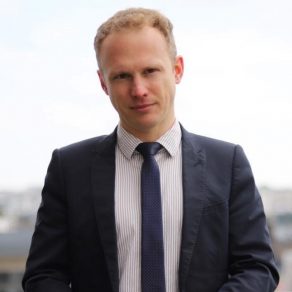 Stefan Olsson, European Commission
Stefan Olsson, European Commission 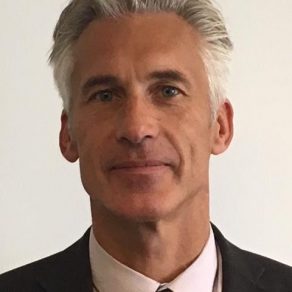 Eunice Romero, Migrations, Refugee and Antiracism, Generalitat de Catalunya
Eunice Romero, Migrations, Refugee and Antiracism, Generalitat de Catalunya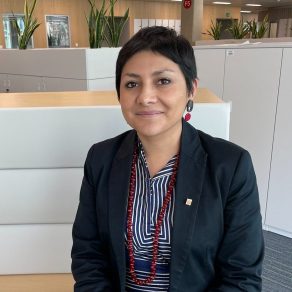 Cristina Amboldi, Actiris
Cristina Amboldi, Actiris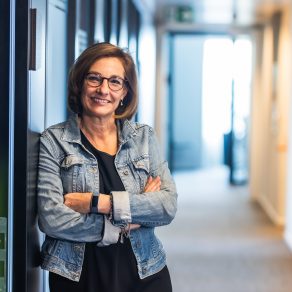 Anne Rudisuhli, European Committee of the Regions
Anne Rudisuhli, European Committee of the Regions


As a mentoring professional, advocacy might have integrated seamlessly into your everyday activities. Perhaps you’ve engaged in advocacy during fundraising efforts, persuading public entities and companies of mentoring’s impact. Or maybe you’ve taken strong positions for structural changes to enhance the lives of your mentors or mentees. But was it truly effective? From local initiatives to a broader European perspective, this Masterclass will provide you with insights from real-world experiences, within and outside the world of mentoring, about crafting impactful advocacy strategies to drive meaningful change.

Our main objective is to equip participants with a practical understanding of burnout, stress, and coping mechanisms. This knowledge can be effectively utilized by mentoring organizations, program staff, and mentors. We aim to highlight potential opportunities and strategies that mentors can adopt to support young people dealing with mental health issues. Additionally, we will identify the likely challenges that mentors may face while supporting youth with mental health struggles.
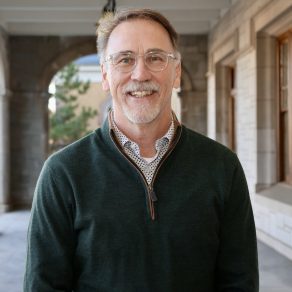 Solenne Bonneterre, Nightline France
Solenne Bonneterre, Nightline France

Youth initiated mentoring is an innovative approach to mentoring in which youth select and are trained to recruit adults from within their own social networks to serve as a formal mentor. YIM has now been implemented in a number of settings, including residential treatment, higher education, child welfare, and in more traditional community-based mentoring programs. In this masterclass, we will discuss the origins of YIM, its innovations, and key considerations for implementation.
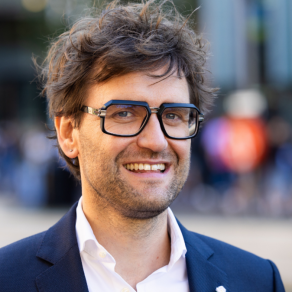 Jean Rhodes, Center for Evidence-Based Mentoring
Jean Rhodes, Center for Evidence-Based Mentoring  Renée Spencer, Boston University
Renée Spencer, Boston University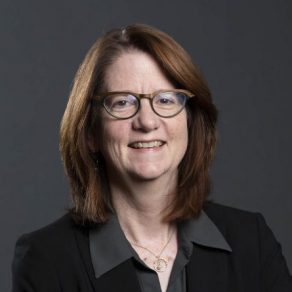

We will explore the inception, evolution, and diverse models of national mentoring ecosystems across various countries worldwide. We will delve into the creation processes of these umbrella organisations, examining the common goal driving their existence: ensuring the provision of quality mentoring programs to the youth they serve.
Combining different case studies, we aim to offer insights into the nuanced motivations underpinning the establishment of these entities. Despite differing origins, each organisation seeks to foster youth development through mentoring. Attendees will gain valuable lessons from the choices made, challenges overcome, and future ambitions envisaged by these pioneering organisations, from nascent initiatives to mature ecosystems.
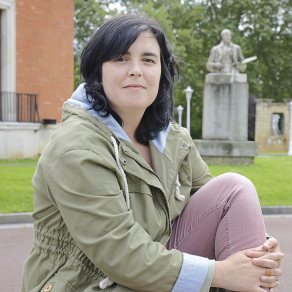 Nicolas Viennot, Collectif Mentorat
Nicolas Viennot, Collectif Mentorat Ricardo Pager, Mentoring Austria - Dachverband für Kinder- und Jugendbegleitung
Ricardo Pager, Mentoring Austria - Dachverband für Kinder- und Jugendbegleitung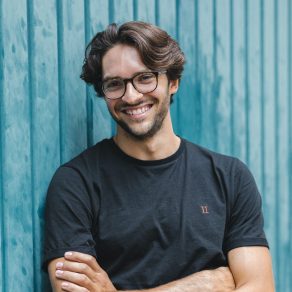 Jermaine Myrie, MENTOR
Jermaine Myrie, MENTOR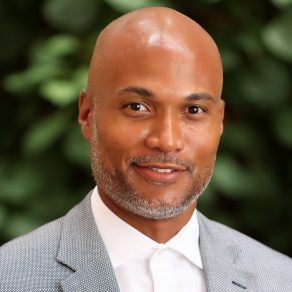 Tracy Luca-Huger, MENTOR Canada
Tracy Luca-Huger, MENTOR Canada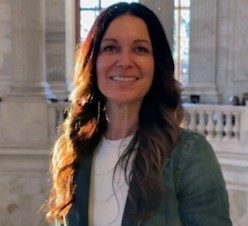 Gloria Amoruso, Bundesverband soziales Mentoring e.V.
Gloria Amoruso, Bundesverband soziales Mentoring e.V.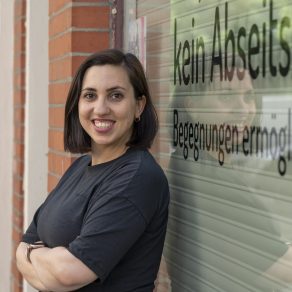 Fiona Soler Harroche, Collectif Mentorat
Fiona Soler Harroche, Collectif Mentorat

The mentoring landscape in Europe is rapidly expanding in response to our varied social challenges and diverse conditions. Both within research organizations and among mentoring providers, there is a growing recognition that methods and guidelines borrowed from other contexts, particularly the USA, may not fit our own realities. Exciting innovations within mentoring practice are unfolding, allowing us to venture into new horizons.
Nevertheless, advancing mentoring beyond its current boundaries could be more successful by involving diverse stakeholders in a co-creation of ‘knowledge and innovation’. How do we establish a mentoring ecosystem where public research, mentoring providers, users (mentors and mentees), and public administrations collaborate? This master class aims to showcase examples of how diverse actors intersect and depend on each other. Through plenary discussions and smaller groups, our goal is to explore opportunities for advancing the field of mentoring in Europe across various levels.
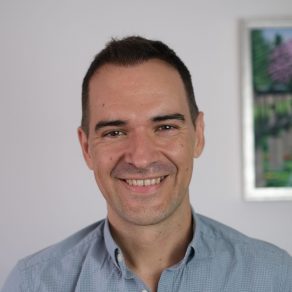 Eberhard Raithelhuber, Bertha von Suttner Privatuniversität
Eberhard Raithelhuber, Bertha von Suttner Privatuniversität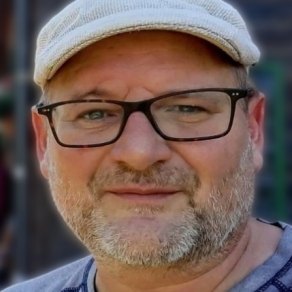


To foster greater networking opportunities and enhance the overall experience, we offer a Networking Cocktail Soirée on Wednesday, 24th. This dinner is an excellent opportunity to connect with fellow participants, share insights, and build lasting relationships in a relaxed and enjoyable setting.
→ Please note that this is an optional event with an additional fee and availability is limited.
DAY 2
🗓️ THURSDAY APRIL 25th


Mentoring is among the most popular forms of volunteering in the world. But how can programs expand their reach while retaining quality and effectiveness. Striking this balance is not easy and there has been a tendency, particularly in the US, to privilege rhetoric and growth over reality and rigor. The truth is that mentoring programs have the capacity to be enormously effective, and to bridge service gaps in ways that democratize wellness and opportunity. Nonetheless, far too few programs are sufficiently grounded in science to deliver on this promise. This talk will provide an overview of past failures and successes and provide a blueprint for expanding effective mentoring without sacrificing quality.
👤 Speaker :
• Jean Rhodes, Director of the Center for Evidence-Based Mentoring at University of Massachusetts, Boston

This panel discussion examines the fine balance between increasing the quantity of mentoring programs and maintaining their quality. The experienced panellists will discuss the challenges faced while scaling up mentoring initiatives, the constraints and limitations that come in the way of achieving scalability, and the strategies that have successfully tackled these issues. With this conversation, we will gain insights from shared experiences, including past mistakes and innovative solutions to navigate the challenges effectively. The discussion aims to crack the complexities of creating replicable and high-quality mentoring programs.
 Marina Claverías Fernández, Associació Quilòmetre Zero & Coordinadora de Mentoría Social
Marina Claverías Fernández, Associació Quilòmetre Zero & Coordinadora de Mentoría Social Stefan Schabernak, ROCK YOUR LIFE!
Stefan Schabernak, ROCK YOUR LIFE!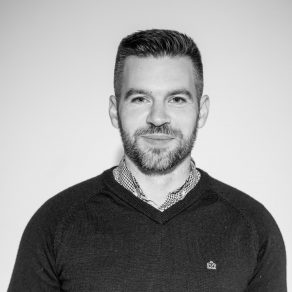 Jean Rhodes, Center for Evidence-Based Mentoring
Jean Rhodes, Center for Evidence-Based Mentoring 


Join us for a one-hour workshop where we’ll share the evolution of our mentoring program at Article 1. This session will focus on the practical aspects of implementing digital solutions and their impact on our growth over the past two years. You will get an insight on how we achieved x20 growth in 2 years: How we transformed our beneficiaries acquisition and registration method, How our matching and follow-up methods evolved over time and The change of mindset in our relationship with beneficiaries. You will also discover how we adapted our program management to match our new goals and the trade-off we had to make along the way
👤 Speakers :
• Matthieu Georgeault, Article 1
• Benoît Landau, Article 1

Youth mental health issues have increased in recent years, and the promotion of better youth mental health and wellbeing is an important policy objective. Mentoring is viewed as a potentially helpful tool in the prevention and intervention of youth mental ill-health. This workshop aims to explore the benefits and challenges associated with the provision of mentoring as a complementary support for youth involved with mental health services. We provide a case study of a partnership model developed between the Irish statutory youth mental health service and Foroige’s Mentoring Programme, drawing on practice insights and stakeholder perspectives.
The keynote will highlight common pitfalls and mistakes from field implementation and academic inquiry, providing a roadmap for navigating challenges and maximising impact. In addition, we will peer into the horizon, offering projections on the future trajectory of mentoring initiatives.
👤 Speakers :
• Dr Charlotte Silke, University of Galway
• Mary Lynch, Foróige

Large numbers of LGBTQ+ youth face difficult odds due to day-to-day experiences with societal stigma, bias, victimization, and rejection. As a caring adult, educator, and youth service provider, you may wonder what you can do to make a difference and change these outcomes. Participants in this session will learn how to apply a new research-informed framework—the PRIDE model—into your relationships and roles with young people. This framework highlights intentional conversations, actions, activities, and engagements you can build into your relationship that promotes growth in five youth competency areas: Possibilities, Resilience, Identity, Development, and Engagement.
👤 Speaker :
• Christian Rummell, Mentorist Consulting

This workshop introduces an innovative online course designed to introduce the field to the concept of attunement, and share a resource that has been developed to train mentors on these skills to facilitate high-quality mentoring relationships. Attunement can be best understood as a heightened awareness and deliberate presence that mentors bring to their interactions with their mentees. This mindful presence allows mentors to use a set of communication strategies that help them build trust and connection with their mentees by making them feel seen, heard, valued, and understood. This workshop will explore the concept of attunement and its evidence base, provide real-world examples of attunement in mentoring relationships, and offer a live demonstration of the course available to those in partnership with Mentor Canada.
👤 Speakers :
• Tracy Luca-Huger, Mentor Canada
• Julia Pryce, Ph.D., Loyola University Chicago
• Linda Gilkerson, Ph.D., Erikson Institute

In 2023-24, three successful but very differently structured mentoring programmes in Denmark, Norway and Finland are working together on a project funded by the Nordic Council of Ministers to gain insight into the potentialities of voluntary ‘mentoring-to-work’ for migrants in the Nordic context. In this workshop we will share how we have evolved our programmes and developed new, holistic solutions and cross-sectoral alliances to achieve a greater social impact. We will then open the floor for discussion with practitioners and experts with experience from the wider European context.
👤 Speakers :
• Cheralyn Mealor, KVINFO
• Erlend Nyheim, Sammen om en jobb
• Cecilia Fewster, Luckan

The start of professional life is decisive for projecting yourself into a positive dynamic in employment. The Woork program provides mentoring so that young people, particularly those with the fewest opportunities, start their professional lives with a positive experience, anchor of a career allowing them long-term fulfillment and faster financial autonomy. This workshop raises the challenges for everyone of this accompanying, provides the necessary framework for the success of the mentoring relationship and will allow discussions on its benefits with witnesses (mentor, mentee, company) involved in the system.
👤 Speakers :
• Bénédicte Sanson, Twoo – Grandir avec le mentorat
• Jean-François Royer, Twoo – Grandir avec le mentorat
• Lou Aubay, Youth Forever
• Marine Billiard, Groupe St Ho
• Wendesom Alves, Two-Grandir avec le mentorat

During a mentoring relationship, many transversal skills are put into play. Empathy, communication skills, self-awareness, responsibility, and commitment, among other skills, are key for mentors to face the different situations that might occur.
In this workshop, we will talk about what the main transversal skills linked to the mentoring role are, and we will focus on the screening of prospective mentors. We will provide tools and activities focused on observing and putting into play those skills that a mentor must have. Making a good screening in terms of skill assessment will help staff members during the matching and monitoring processes, allowing them to offer a better support throughout the mentoring relationship.
👤 Speakers :
• Isabel Gutiérrez, Coordinadora de Mentoría Social
• Maria Quintana, Coordinadora de Mentoría Social

The workshop will complement a participatory methodology both in big group and in smaller groups, with the theoretical exposition of key concepts. The theoretical exposition will be based on the own experience of professionals in AFEV combined with major theories about community social work.
The participatory methodology aims to create a space for sharing knowledge among diverse professionals. The goal of creating this space is to achieve a source of knowledge, practices, and innovation that can be applied to each unique project.
Through the exchange and following the theoretical explanation, the objective is to create individual materials for each participant. Each participant can take away a personalized guide outlining the main steps for initiating or deepening in how and with whom to do community work in their own projects.
👤 Speakers :
• Joke Aerts, Afev Catalunya
• Eliseo Loyée, Afev Catalunya
• Marta Toro, Afev Catalunya

Through presentation, case studies and discussions, YMCA Edinburgh staff will create opportunities to reflect on mentoring models and practice, challenging assumptions around mentoring service delivery and working with children and families. This will be approached within the context of Scotland’s national call for systems change. Learning from YMCA Edinburgh’s innovative journey of development and adaptation to fulfill Scotland’s ambition to be the best place in the world to grow up.
👤 Speakers :
• Mike Kerracher, YMCA Edinburgh SCIO
• Alana Taylor-Campbell, YMCA Edinburgh


In recent years there has been a significant increase in the numbers of young asylum seekers and refugees in Europe. Mentoring may be viewed as a powerful tool to support these young people to integrate into their new communities. This workshop aims to explore the benefits and challenges associated with the provision of mentoring as a support for young asylum seekers and refugees. We will provide case studies of two different models of mentoring developed and implemented by Foroige to support particular cohorts of young migrants in Ireland, drawing on practice insights and stakeholder perspectives.
👤 Speakers :
• Jill Murray,, Foróige
• Peter Duffy,, Foróige

Goal: To describe and reflect on innovative mentoring models developed in the West of Ireland to support access, retention and progression in a higher education context. Methodology: Interactive lecture interspersed with guided individual reflection and group conversations. Participants will gain:
1. Greater awareness of mentoring approaches in higher education including school-based, community-based and college-based models.
2. Insights from multiple stakeholders regarding the benefits and challenges associated with mentoring in this context.
3.Knowledge of a set of practice principles developed to guide mentoring practice in this context. Attendees who are interested in access, retention and progression in higher education and university-community partner collaborations.
👤 Speakers :
• Ronan Cox,, Atlantic Technological University
• Kirsten Lowe,, Atlantic Technological University
• Maria B.Kelly,, Atlantic Technological University

One of the benefits of mentorship is that it exposes mentors and mentees to new perspectives, new realities. But what happens when the values of a mentor conflict with those of a mentee? And how should mentorship program staff position themselves, especially when the mentee’s future is at stake? This workshop uses two case studies—drawn from true experiences in Canada and in Spain—to explore how gender, race, and origin interact in intercultural mentorship relationships.
👤 Speakers :
• Laura Prego Cuesta,, Fundació Nous Cims
• Jennifer Petrela,, Mentorat Quebec

The workshop will present and reflect peer mentoring as a method of social interaction in queer contexts based on current project experiences (2020-2024). The strengths and limitations of the method and success factors will be discussed. The workshop will provide a direct insight into the practice of the Hamburg mentoring project “Peer4Queer”.
👤 Speakers :
• Alexei Medvedev, Peer4Queer
• Tabea von Keitz , KWB Koordinierungsstelle Weiterbildung und Beschäftigung e. V.
• Hannah Münstermann , KWB Koordinierungsstelle Weiterbildung und Beschäftigung e. V.

A transformative workshop that emphasizes the role of healing practices in mentor and mentee relationships. Through activities and examples from the field, participants will explore how fostering authentic connections and integrating holistic healing methods can positively impact the mentor-mentee dynamic. Participants will leave with practical tools to prepare them to foster healing and intention well-being strategies that yield impactful mentoring relationships. This workshop empowers participants to create training and resources that nurture environments where young people can thrive emotionally, mentally, and socially, ultimately enhancing the effectiveness and depth of their mentoring relationships.
👤 Speaker :
• Desiree’ Robertson, MENTOR

To promote quality services in youth mentoring programs across the U.S., MENTOR developed the Elements of Effective Practices for Mentoring and an intervention, the Quality Mentoring System (QMS), through which its affiliates support programs in adopting recommended practices. This workshop describes this program quality improvement intervention and presents findings from a major study evaluating its effectiveness and exploring its implementation within programs. Attendees will discuss the implications of research findings indicating that program practices affect mentoring experiences, QMS contributes to program change, and organizational readiness for change influences success in quality improvement initiatives.
👤 Speakers :
• Thomas Keller, Portland State University
• Renée Spencer, Boston University School of Social Work

Would you like to learn about how to shape mentoring programmes in a co-leadership of youth, mentees and mentors? Are you interested in how to involve target groups and youth’s voice in programme development and execution? Are you looking for new ways in running a mentoring activity as a workplace for your target group and involving them in goal setting? Then join the workshop led by youth. MentorProgramma Friesland is a collaborative mentoring scheme of VET and HEI schools in the North of the Netherlands, since 1997. Its vision is based on the central position of target groups in determining and delivering the mentoring services: for, by, with youth, students and target groups. This workshop will give you inspiration on how to involve people in shaping and developing a programme, and give you tools on how to work with youth and target groups in the operations.
👤 Speakers :
• Kamilla Gorczynska, MentorProgramma Friesland
• Szilvia Simon, Mentoring Europe
• Joost Bijma, MentorProgramma Friesland
• Student Team, MentorProgramma Friesland / Mentoring Europe

Long lasting mentoring programmes require a few key success factors to meet individual’s and organisation’s needs. Based on participants and facilitators contributions, this workshop aims at sharing concrete experiences in order to enhance the quality and the sustainability of ongoing or future mentoring programmes. It will cover all stages of mentoring programmes’ life cycle : from the needs to the results of learnings. The mentoring programmes’ adapted frameworks will consider elements such as clear process and role distribution, key players training process, competency development as well as professional support.
👤 Speakers :
• Catherine Thibaux, EMCC France
• Sylviane Cannio, EMCC Belgium and Global
• Christophe SIMOES, EMCC France



Whereas the benefits of the mentor mentee relationship in terms of better outcomes for youth have been well exercised in research policy and practice, this paper argues that the empathy factor has been largely overlooked. More importantly the focus of the presentation will centre on the untapped potential of activated kindness as a key component of the relationship. Empathy is not just the capacity to enter into the shoes of the other and create human understanding, it also has the potential of enabling positive life changes for youth through the connected fostering of social support and resilience enablement. This empathy connection in mentoring as yet under-researched will also explore the concept of engaged citizenship as a positive side effect in mentoring. Exploring the benefits of demonstrating empathy for mentors outweighs the risk of empathy fatigue and is the major social return on the relationship. Finally a paradigm policy shift utilising activated compassion is suggested for mentoring and offered as a new horizon going forward.


Understanding the life journey of the individuals we welcome is essential to comprehending how their experiences shaped their present circumstances. This understanding is key to providing better support to them. In this discussion, we will explore how the diverse backgrounds of newcomers impact their present lives. Specifically, we will examine how mentoring can meet the needs of young people from immigrant backgrounds, considering their current stage in life. Our goal is to identify the necessary conditions for providing quality mentoring to newcomers and highlight the best practices in the field.
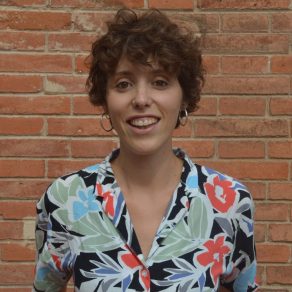 Marion Hébert, Kodiko
Marion Hébert, Kodiko 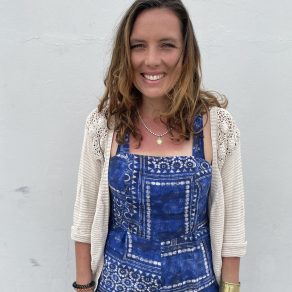 Peter De Cuyper, The University of Leuven
Peter De Cuyper, The University of Leuven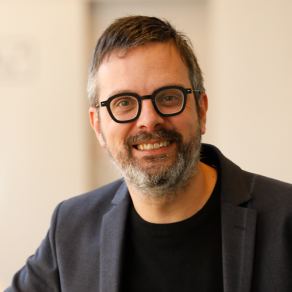 Elisabeth Verniers, DUO for a JOB
Elisabeth Verniers, DUO for a JOB 


MENTOR (USA) created the Elements of Effective Practice for Mentoring in 1991 to provide programs with research-informed and practitioner-approved standards for creating effective youth mentoring programs. While the EEPM gives programs a good starting place, quality is multidimensional and complex and that using cookie-cutter definitions often misses many relevant and unique contexts and perspectives. With this in mind, MENTOR and Mentor Canada each developed Quality Mentoring Systems. Our respective QMSs include self-assessments and consulting models that allow programs to assess their strengths and areas for growth and to partner with us on their quality journey. Grounded in research, both systems provide practitioners with opportunities to reflect on two critical questions: why and how they operate their programs. This masterclass will provide opportunities to learn more about the lessons learned from this work, including: 1. the importance of blending research and on-the-ground wisdom and innovation; 2. context matters; 3. quality efforts must also confront issues of equity.
 Nicki Patnaude, MENTOR
Nicki Patnaude, MENTOR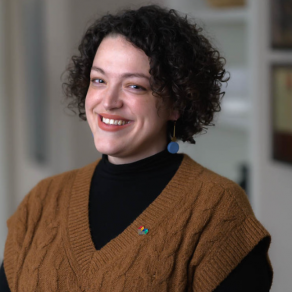 Renée Spencer, Boston University
Renée Spencer, Boston University Tim Cavell, University of Arkansas
Tim Cavell, University of Arkansas Thomas Keller, Portland State University
Thomas Keller, Portland State University

In this masterclass, we will try to define the roles that parents can play in the development of their child mentoring relationship. For participants involved in a mentoring structure, this masterclass will be an opportunity to enrich their practices of supporting parents. This masterclass will be divided into three segments. In the first segment, we will define the concept of parental engagement in education and attempt to apply the parameters of this concept to the parent-child-mentor relationship. We will then review the latest knowledge on parent-child-mentor relationships, notably drawing on the highlights of the Big Brothers Big Sisters of Canada Longitudinal Study (2006-2016). In the second segment, we will highlight AFEV’s experiences in the field of parental engagement with the aim of illustrating the facilitators and barriers in the deployment of parental support practices. The final segment will be dedicated to discussions with participants on parental engagement and mentoring.
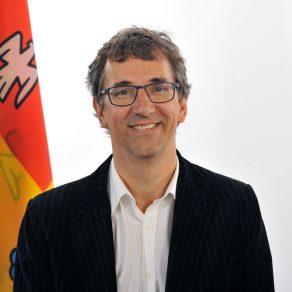 Eunice Mangado-Lunetta, AFEV
Eunice Mangado-Lunetta, AFEV Remy Verlyck, Familles Durables
Remy Verlyck, Familles Durables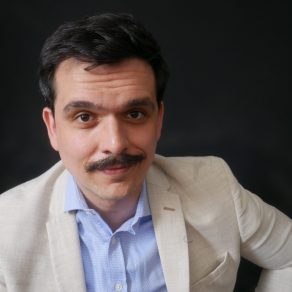 Alexanne Bardet, Vers Le Haut
Alexanne Bardet, Vers Le Haut

Are you looking for ways to spread your mentoring programs effectively? Look no further! We have explored various strategies and models to help you choose how to disseminate your mentoring programs. Whether you operate on a local, national, or global scale, learn from some of the oldest programs in the world as well as some of the newest. Together, they will share their proven methods on how they have developed their mentoring programs and reached new territories; they will share the challenges faced throughout their journey and the best choices made when thinking dissemination.
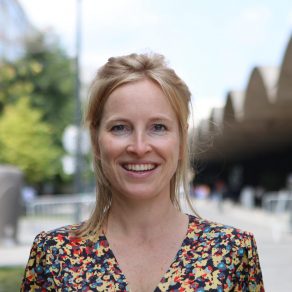 Florence Massenot, Télémaque
Florence Massenot, Télémaque Mar Avendaño, Fundació Bofill
Mar Avendaño, Fundació Bofill  Fleur van IJperen, Project coordinator Big Friends Utrecht
Fleur van IJperen, Project coordinator Big Friends Utrecht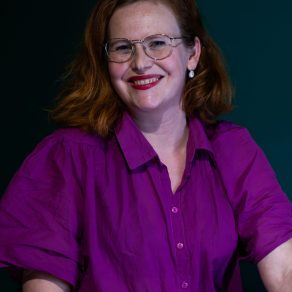

Over the past four years, Collectif Mentorat has been committed to helping its members scale up their mentoring programs and establish quality mentoring services throughout France. We will follow their journey, which started from an informal conversation between eight mentoring organizations, to the development and implementation of a national mentoring plan for youth recovery after COVID-19. We will also explore Collectif Mentorat’s commitment to quality, including their creation of the first mentoring incubator for social mentoring programs, as well as the recent launch of their quality system. With the support of their members, we will gain an understanding of the government’s involvement and goals and how they, along with Collectif Mentorat, were able to make this bottom-up public policy a success.
 Camille Béquet, Collectif Mentorat
Camille Béquet, Collectif Mentorat Sébastien Lailheugue, Proxité
Sébastien Lailheugue, Proxité Sabrina Deal, JobIRL
Sabrina Deal, JobIRL
DAY 3
🗓️ FRIDAY APRIL 26th


This Workshop will provide a brief overview of how a mentoring programme can be implemented and adapted to the context of a sports club, school and university. We will explore the purpose and main objectives of a sports mentoring programme and the importance of role models when working with young people – with challenging behaviour or students who want to be professional sportspeople; promoting active citizenship among older or professional athletes or coaches. Participants will have the opportunity to contact and try out some mentoring tools that they could use when promoting mentoring programmes with young people in their clubs, organisations, schools and universities. Join us – Roberto Kielty from Uk (Faculty of Sport in the University of Stirling) and Teresa Sousa, from Portugal (APROXIMAR) – to think and discuss together about Sports&Mentoring!
👤 Speakers :
• Robert Kielty, University of Stirling
• Teresa Patrícia Fernandes Sousa, Aproximar Cooperativa de Solidariedade, CRL

Discover more about mentoring and entrepreneurship in the arts and creative sector. Gain insights, learn from experiences and find inspiration to achieve greatness. How to achieve the perfect match between mentor and mentee and how to connect with trained mentors and motivated mentees for effective mentoring relationships? How to build a thriving community How to use very effective mentoring tools and resources to optimize guidance and support for mentees, strengthen and shape the next generation of entrepreneurs This makes it very interesting for mentors to contribute to this!
👤 Speaker :
• Eline de Koning, Firda

This session is a deep dive into the transformative power of peer mentoring for youths with disabilities. Explore the profound impact of meaningful connections, effective communication, and the cultivation of an inclusive support network. With representatives from 100% Handinamique and ARPEJEH, two organisations specialised in mentoring youths with disabilities, attendees will discover practical tools, strategies and best practices that highlight the unique strengths of peer mentoring. Key takeaways include insights on adding peer mentoring specifically with youth with disabilities to your programs, fostering self-advocacy, and creating an environment where peer mentoring becomes a cornerstone for empowerment.
👤 Speakers :
• Jérémy Arnault, Arpejeh
• Clara Ouriachi, 100% Handinamique

Do you want to learn how to use mentoring to promote wellbeing at workplaces? This workshop provides the opportunity to go beyond the traditional thinking. Attending our workshop, you will be actively involved in creative thinking processes leading to learn how to, step by step, design an evidence-based mentoring programmes that, using a participatory approach, supports mental wellness at the workplace. By the end of the session you will learn:
1. The benefits of using mentoring to improve well-being and reduce job-associated burnout in work environments;
2. The importance of using a participatory approach for designing a customized mentoring program for workplaces;
3. How to set up an evidence-based mentoring programme to tackle mental health issues, job burnout and job-related stress, using as a starting point M4Pris programme being implemented as a support intervention targeting prison officers.
The workshop will be conducted in an interactive and participatory approach.
👤 Speakers :
• Tiago Leitão, Aproximar, Cooperativa de Solidariedade Social
• Peter De Cuyper, University of Leuven
• Rita Lourenço, Aproximar, Cooperativa de Solidariedade Social

Social capital is unequally distributed, and marginalized youth, particularly young women, often struggle to find caring adults who can bolster their confidence and connect them to opportunities. To address this gap, programs are increasingly deploying “youth-initiated” mentoring approaches, which train young people to recruit caring adults from within their schools and communities, i.e., “teaching to fish.” But, since those from more marginalized backgrounds have equal access to mentor-rich networks in these settings, there is also a need to “stock the pond” with caring adults. In this workshop, we will discuss an innovative new approach, Flash Mentoring, in which a program (Step Up), recruited a network of caring women to whom young girls and young women reach out for time-limited advice and support. Key considerations, initial findings, and new efforts to expand flash mentoring globally will be discussed.
👤 Speakers :
• Jean Rhodes, Center for Evidence-Based Mentoring
• Delores Druilhet Morton, Step Up

How do we define a meaningful relationship? Rigorous knowledge regarding what makes an impact on a mentoring relationship is one of the key points for legitimizing the use of this intervention and its development and extension. A Mentoring Quality Index (MQI) with aggregated and weighted indicators may boost your mentoring program in three ways: by providing a continuous track of the quality of each accompaniment; by evaluating the overall quality of the program’s implementation; and finally, by obtaining causal inferences between different mentee/mentor profiles and their practices for better selection and matching of participants.
👤 Speaker :
• Víctor González Núñez, Fundació Nous Cims

Digital tools can enable us to build a stronger community within our mentor programmes, improve the experience and outcomes of individual participants, ease the management task of coordinators, and help us reach out to mentees who would otherwise have no access to a mentor. The possibilities are endless, but so are the challenges. The aim of the workshop is to help you construct even better mentor programmes by using digital tools, while also understanding their limitations.
👤 Speaker :
• Erlend Nyheim, Sammen om en jobb

Surprisingly, ‘social mentoring’ remains absent from study programs or continuing education, despite the escalating demand for mentoring knowledge and practical skills. What training needs do organizations involved in mentoring practice have, and how can tertiary education bridge this gap? What models could effectively address this, and what roles might mentors, mentees, and employees play? The Ment4EU Cooperation Partnership invites diverse stakeholders in the business of mentoring to brainstorm and pinpoint specific topics that should be included in short courses and curricula for the mentoring industry and academia as well as discuss current social mentoring needs organizations and education institutions have.
👤 Speakers :
• Tatiana Ciff, NHLStenden
• Anneke Feenstra, NHLStenden

The term skills is on everyone’s lips, and has even been the star of the year 2023 for Europe! But what about in the world of mentoring? How can we make the identification and valorization of skills developed through mentoring a key element in the quality of a volunteer’s career? What examples exist in the voluntary sector, higher education or the professional world? How can they help us place skills at the heart of mentoring? This workshop aims to shed light on all these points.
👤 Speakers :
• Inès Donischal, Afev
• Fernanda Garza, Afev

“C’Possible is a nonprofit dedicated to facilitating the insertion of vocational high-school students via mentoring and other programs. It has grown from operating in a handful of schools in one region in 2017 to working with 50 high-schools and accompanying 250 mentees in 4 regions in 2023. Volunteers and board members will explain the strategies implemented to achieve quality growth:
• Partner with formal education bodies
• Attract mentees in ways that avoid stigmatization
• Recruit and train high-quality mentors
• Plan for territorial development, anticipate its impact on governance.
During this workshop, C’Possible will share best practices and lessons learned along the way.”
👤 Speakers :
• Anne Doyle, C’Possible
• Nicolas Desachy, C’Possible


Mentors are the backbone of successful mentorship programs, but their skill sets can vary widely. Join us as we explore the definition of a core skill set specifically for mentors in the corporate world. In this workshop, we will discuss approaches to enhance mentors’ skills and recognize their commitment, for the benefit of their own growth and their corporation. We will bring real-world insights with the testimony of Sanofi and their recent HR initiative. Throughout the workforce mentoring experience, we will identify how corporations can play a role in identifying, recognizing, and valuing the skills developed by their employees engaged in social mentoring actions. This workshop has been designed in collaboration between Cap Mentorat and Sanofi.
👤 Speakers :
• Aude Beneton, Cap Mentorat
• Dominique Cancellieri, Cap Mentorat
• Brigitte Riche, Sanofi
• Diane Brément, Sanofi

In the project “School mentors” we operate in many dimensions of mentoring and aim to expand its positive outcome from parents and children to schools and communities. With help of dialogic mentoring parents in our mentoring project are simultaneously curious mentees and experienced mentors. After comprehensive qualification mentors can support their own children and other families in school related questions. Beyond that parents improve their social, intercultural as well as managerial skills and can undertake an official role as parent-mentor in the school of their children. The role of parent-mentor means not only a valuable task and constant process of self-education, but also makes schools and educational institutions transparent and socially inclusive.
In the workshop we share with you some success stories from schools in Hamburg and present our strategy to minimize language barriers. Based on the experience of our mentoring project we want to initiate a dialog about challenges and best practices, how to engage parents in schools and possibilities to make mentoring accessible for socially underprivileged families.
👤 Speakers :
• Anna Semenovaj, KWB e.V., Hamburg, Germany
• Jörg Belden, KWB Koordinierungsstelle Weiterbildung und Beschäftigung e. V. – Bundesverband Soziales Mentoring e. V.

Building Futures: The Power of Mentoring in Juvenile Justice Programs: Dive into the Building Futures Workshop, where attendees will unravel the transformative potential of mentoring for young individuals in conflict with the law. Gain insights into the methodology, utilizing law-abiding role models to foster positive attitudes and behaviors. Learn to navigate digital tools, including a mobile app, to facilitate effective mentoring communication. Discover the intricacies of developing a European mentoring program within the justice context. Ideal for public institutions representatives, educators, program staff from mentoring programs, this workshop unlocks the keys to building human capital through mentoring. Join us to explore the realms of positive youth development and crime prevention.
👤 Speakers :
• Onur Sultan, Beyond the Horizon ISSG
• Rita Lourenço, Aproximar, Cooperativa de Solidariedade Social

In this workshop, we will share our experiences in training mentors and supporting mentoring pairs. Participants will know how to organise role clarifications with relevant stakeholders, they will know the needs of mentoring pairs and they will know which skills and resources should be available within the organisation and which can be covered by external partners. Participants will also learn about ways in which the conclusion of mentoring relationships can be accompanied in an appreciative manner. Organisations that already run a mentoring programme or would like to start one will benefit most from this workshop.
👤 Speakers :
• Alexandra End, ROCK YOUR LIFE! Schweiz
• Catherine Fournier, ROCK YOUR LIFE! Schweiz

Who are the 10millions of youngsters growing up in remoted areas of France? Why are they experimenting constraints limiting their possibilities due to the place they live? How a specifically designed mentorship program can help them to express their potential at the fullest?
👤 Speakers :
• Baptiste Fassin, Chemins d’avenirs
• Glennie Nansé, Chemins d’avenirs

Genuine, caring, human connections form the foundation needed for mentoring relationships to grow, thrive, and support mentees’ success. In this session, mentors and mentoring program leaders will learn evidence-based caring practices designed to maximize their positive impact on mentees within the context of professional mentoring relationships.
👤 Speaker :
• Dr. Daniel H. Shapiro, Broward County Public Schools

This workshop will host an interactive discussion on how to build strong, sustainable, and long-lasting corporate partnerships for the benefit of disadvantaged youth. Together we will explore key elements of workforce readiness program and exercise practical tools to engage corporate employees into youth mentoring projects. Live case study of the seven-year partnership between Boeing and Kidsave in Ukraine will provide insights on using innovative techniques and adjusting to unforeseen and challenging conditions. This session will benefit wide range of attendees from non-profits, funders, businesses to young leaders and philanthropists. Join our conversation on how to creatively leverage impactful partnerships.
👤 Speakers :
• Tatiana Stafford, Kidsave
• Natalia Kravchuk, Kidsave Ukraine

In this session we will share the nearly 20 years of experience of the BUDDY program whose vision is that every child not growing up in their own family has at least one person they can trust and lead an independent life. You will learn about the importance of having an open mind and staying focused on the needs of your target group when designing an effective and sustainable solution. You will also learn about our approach where „doing no further harm“ is at the heart of all we do as we try to scale and improve the quality of life of more children. The session is open to all.
👤 Speaker :
• Lucia Kossarova, BUDDY


Discover an inspiring mentoring endeavour that will bring you all the way up to the Summit
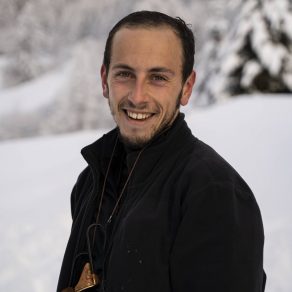

In today’s world, youth mentoring has become an essential tool for empowering and guiding young minds towards their future. As a part of society, corporations play a significant role in this process by providing support or taking concrete actions. By doing so, they can make a tangible impact on the lives of many young individuals and help them achieve their full potential.
Where lies the key to this success? How can we find the best fit between corporations and youth aspirations, and what role does mentoring play in it?
Through research and exploration, mentoring programs and corporations can identify the most effective ways in which they can contribute to empowering futures through mentoring initiatives and create a positive impact on society as a whole.
Join us in exploring why mentoring is necessary for corporations and how they can get involved to empower futures and ensure a brighter tomorrow for the next generation.
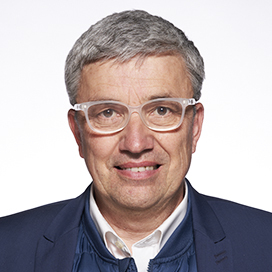 Patrick de Villepin, BNP Paribas
Patrick de Villepin, BNP Paribas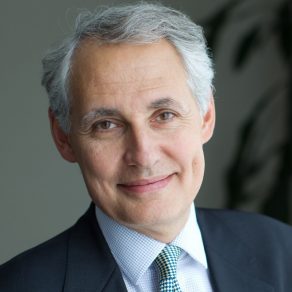 Constance De Bremond d´Ars, Group AXA
Constance De Bremond d´Ars, Group AXA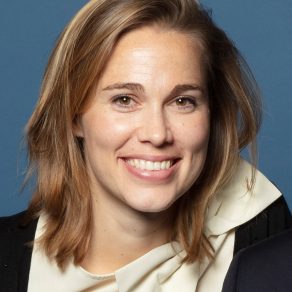 Jennifer Petrela, Mentorat Québec
Jennifer Petrela, Mentorat Québec

We will listen to the narratives of mentees positively impacted by mentoring, which has helped shape the adults they are today. These personal stories of mentorship have inspired and empowered them to actively participate in society’s endeavours. As a result, they have become influential individuals, driving change, innovating, and advocating for a better tomorrow.
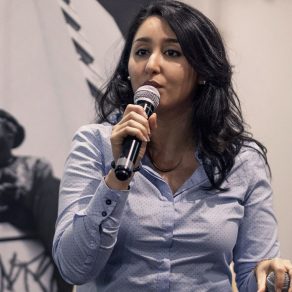 Mahmoud Assy, Eufonía Diversity
Mahmoud Assy, Eufonía Diversity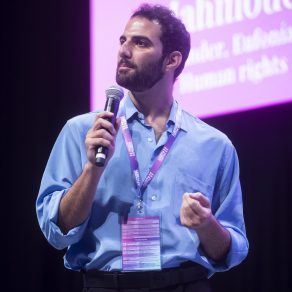

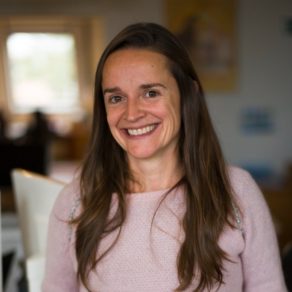


Mentoring generates significant impacts in our societies, which can also contribute to the 2030 Agenda. But how are we doing this? Through a participatory workshop we will discuss how our projects are allies of the 2030 Agenda. Participants will arrive to consensus on which of the Sustainable Development Goals are the main ones where mentoring is creating a significant input. It provides with an opportunity to enrich our understanding of mentoring processes. The dynamic has already been tested in a pilot workshop in Spain, and a publication with the results will be also disseminated at the end of the workshop.
👤 Speakers :
• Maider Maraña,, Baketik Foundation
• Kristina Soares,, Baketik Foundation
• Maite Aseginolaza,, Baketik Foundation